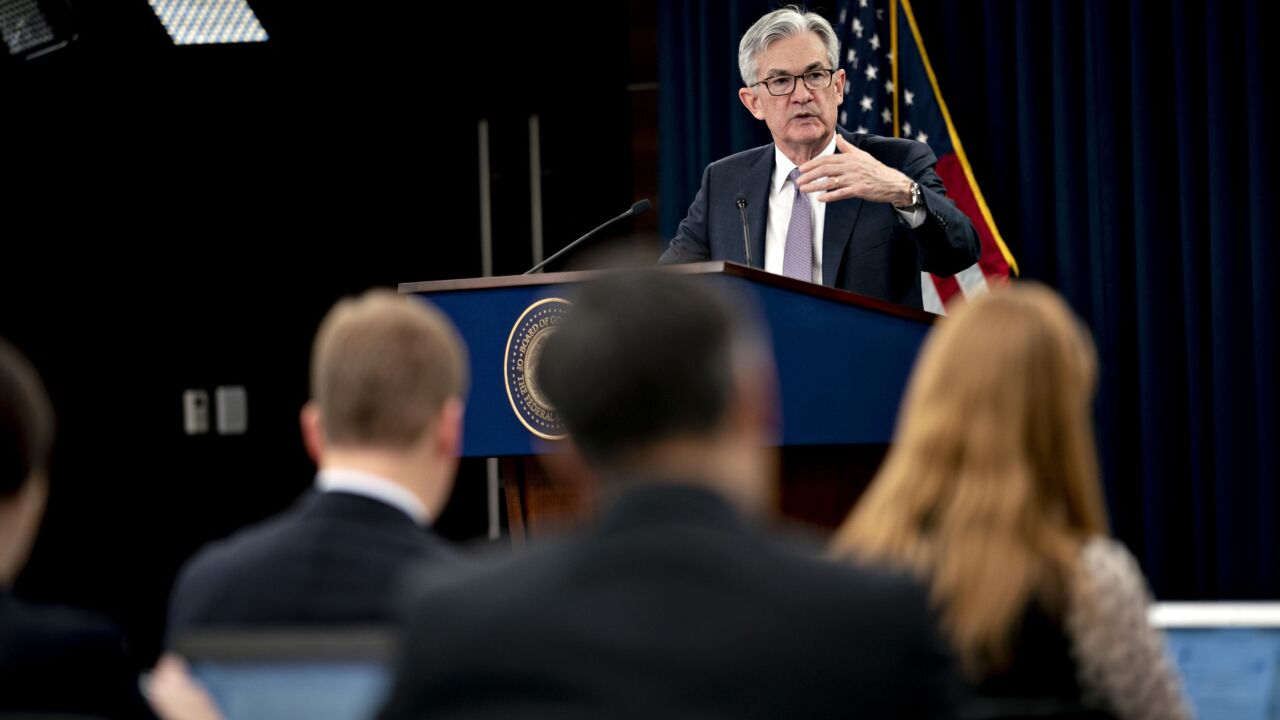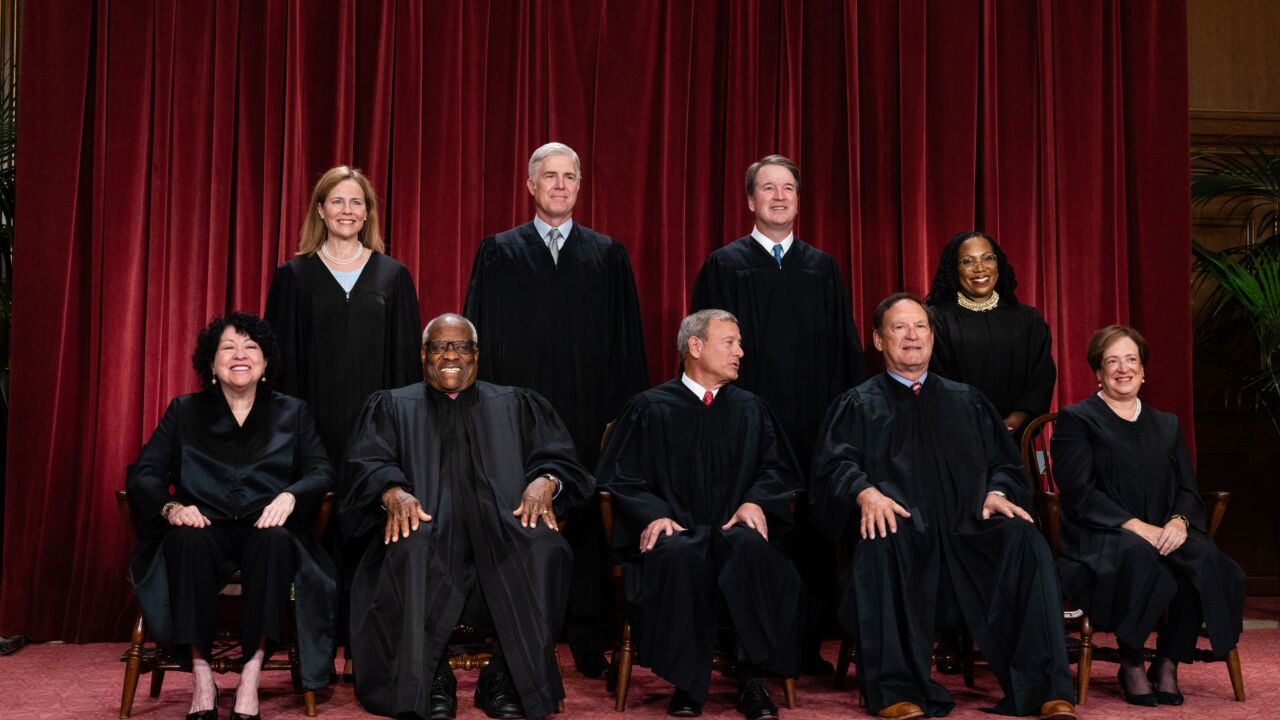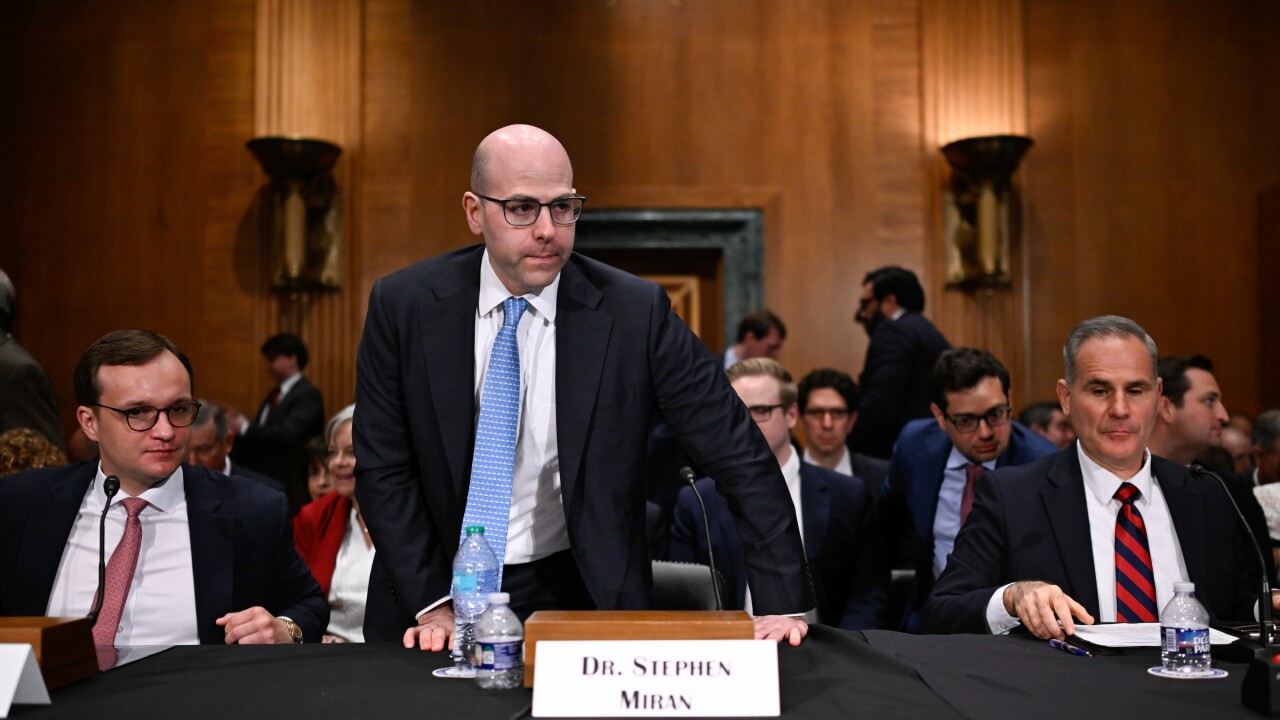-
Kansas City Federal Reserve President Jeffrey Schmid and Chicago Fed President Austan Goolsbee said in statements Friday that their dissents from this week's interest rate decision were spurred by inflation concerns and a lack of sufficient economic data.
December 12 -
Fed Chair Jerome Powell, speaking at a press conference after the December FOMC meeting, said the central bank is holding interest rates steady until it gets more clarity on the economy.
December 10 -
Federal Reserve watchers expect a board of governors vote in February to reappoint the 12 regional Fed bank presidents — which is typically treated as a formality — to be the next flashpoint in the White House's effort to bring the central bank to heel.
December 8 -
Federal Reserve Gov. Stephen Miran reiterated his view that monetary policy has become more restrictive than economists think, but expressed increased urgency that the central bank take strong corrective action.
November 20 -
Fed Gov. Stephan Miran has spent his short tenure at the central bank arguing that disinflation in housing and immigration reforms will tamp down inflation in the near term. But other economists say the timing, degree and context of those effects is very much in question.
November 13 -
Federal Reserve Bank of Atlanta President Raphael Bostic won't seek reappointment following the end of his current term on Feb. 28, 2026.
November 12 -
Federal Reserve Governor Stephen Miran said emerging stresses in housing and private credit markets warrant a reduction to short-term interest rates. While preferring a 50 basis point cut in December, Miran said he would settle for a 25 basis point reduction.
November 10 -
Federal Reserve Vice Chair Philip Jefferson said that as interest rates have moved toward a more neutral level, "it makes sense" now to proceed with caution.
November 7 -
Michael Barr said he believes artificial intelligence will have a positive long-term impact on the economy, though it may cause job losses in the short term.
November 6 -
The Federal Open Market Committee is expected to announce guidance on the end of its quantitative tightening program later Wednesday. As that process draws to a close, experts are questioning when and how the central bank should use its balance sheet to smooth economic stress in the future.
October 29 -
Federal Reserve Gov. Michael Barr said in a speech Thursday that he fears the gradual pace of price increases from tariffs being passed on to consumers may prolong the one-time inflationary effect of the tariffs to the point where it affects consumers' inflation expectations.
October 9 -
Legal experts say the Supreme Court's decision not to immediately rule on a request to remove Federal Reserve Gov. Lisa Cook from office suggests that, whatever the court's views on independent agencies may be, it views the central bank differently.
October 7 -
The Supreme Court said Wednesday that it would defer President Donald Trump's request for a stay until after oral arguments scheduled for January 2026, allowing Federal Reserve Governor Lisa Cook to remain on the board at least until then.
October 1 -
Federal Reserve Chair Jerome Powell said in a speech Tuesday that the central bank's policy stance is "modestly restrictive," a stance that will give the central bank flexibility to react to an uncertain economic future.
September 23 -
Federal Reserve Vice Chair for Supervision Michelle Bowman said in a speech Tuesday that steeper interest rate cuts should be on the table if the labor market continues to show signs of decline.
September 23 -
Federal Reserve Governor Stephan Miran floated the idea of conducting monetary policy with an eye toward the neutral rate and suggested that the president's immigration and fiscal policies will exert downward pressure on inflation.
September 22 -
The Federal Open Market Committee's decision to reduce interest rates for the first time in nine months lifted bank stocks Wednesday. The 25-basis-point reduction could lead to net interest income headwinds now, but loan growth later, analysts said.
September 17 -
A federal district court judge granted an injunction allowing Federal Reserve Gov. Lisa Cook to remain on the central bank's board pending the outcome of her legal challenge to President Donald Trump's move to fire her late last month.
September 10 -
Stephen Miran will take unpaid leave from and might seek to return to President Trump's Council of Economic Advisers, he said, raising conflict of interest questions in his nomination hearing for a seat on the Federal Reserve Board.
September 4 -
Federal Reserve Bank of St. Louis President Alberto G. Musalem said central bank autonomy leads to lower inflation and stable employment numbers. His comments come amid the Trump administration's attempt to remove a Fed board member for cause.
September 3

















